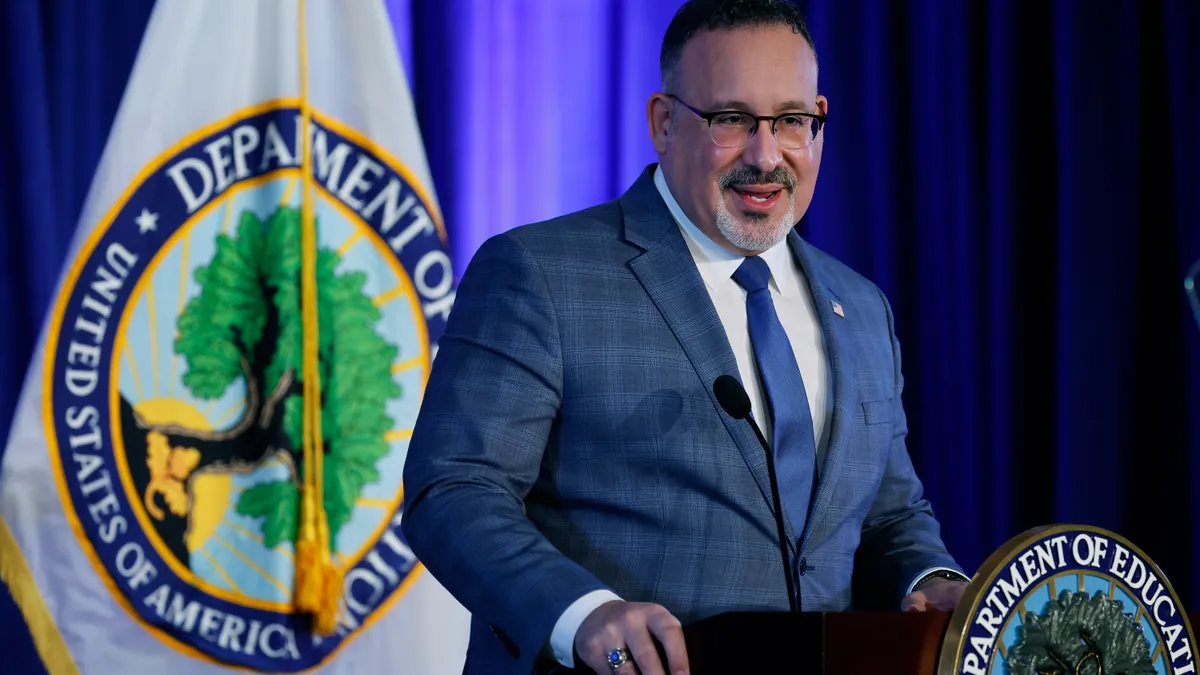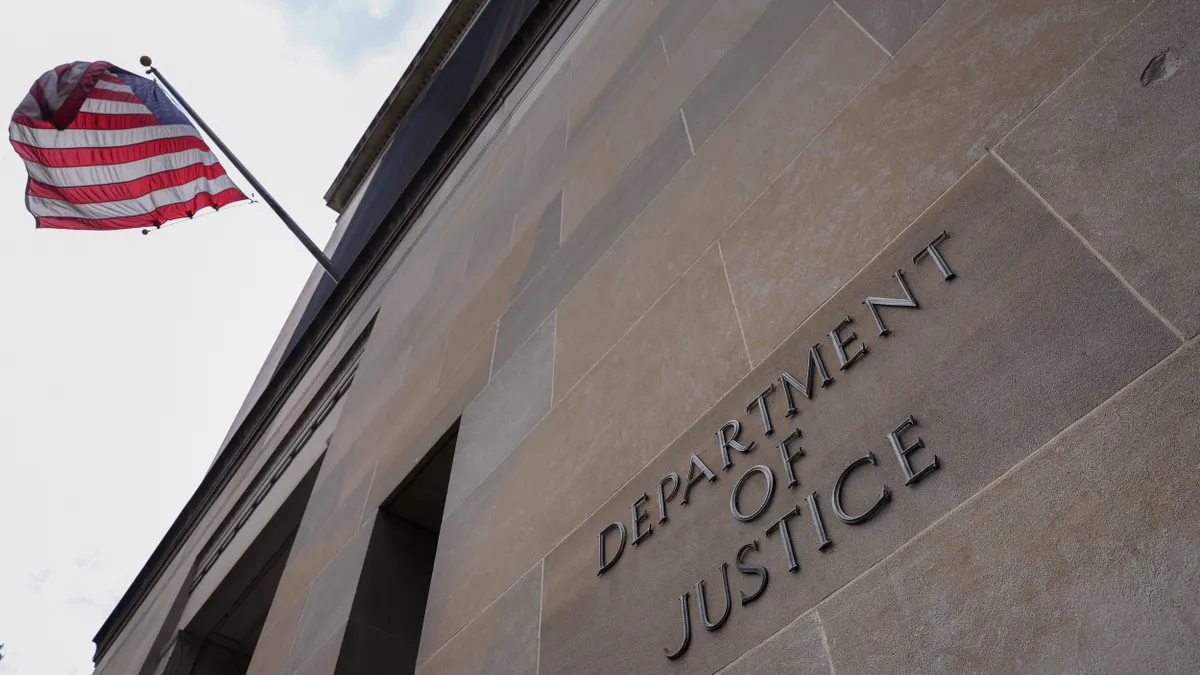When U.S. Secretary of Education Miguel Cardona was confirmed in March 2021, he faced a drastically different K-12 landscape than now — a majority of schools were closed due to COVID-19, administering assessments reliably seemed to many an insurmountable task, and data had just started to confirm worries about widening achievement gaps.
Despite the circumstances, Cardona entered his first few months with gusto.
A little over a year into his term and with exhaustion creeping into his voice, the 12th secretary of education is now looking at a new set of challenges.
Despite being open, a majority of public schools are understaffed, student attendance is down, and assessment participation and results have consistently shown the remaining students are behind in their learning. Outside the classroom and in board meeting rooms, stakeholders continue to be divided over laws increasingly setting boundaries around curriculum materials and classroom discussions.
Amid it all, we sat down with Cardona to discuss his first year as secretary and the path forward.
Editor's Note: The following interview has been edited for brevity and clarity.
K-12 DIVE: Recently, you said the nation’s schools are entering “a new phase” as a majority have reopened. What are some challenges you expect districts to run into in this new phase, and how will the Ed Department support those districts?
MIGUEL CARDONA: The work is not going to get easier, it's going to get different. I'm excited about this next chapter. We have an opportunity and responsibility to disrupt systems that didn't work in the past. So while I want to allow educators to catch their breath, because really they've been doing heroic work, especially during omicron, I really want to make sure that we're shifting now to transformative change, to innovation, to really boldly addressing inequities.
And the challenges now are different than they were three years ago. People are frustrated. People are fatigued. There's more division now. So we're gonna do what we do best: Bring people together around education.
So this next challenge for us is really innovating and disrupting conventions at a time when people are fatigued or tired or divided in some cases. But we signed up to lead, and we signed up to serve children, and that's what we have to do.
The department has many times pushed districts to use federal funds, like those from the American Rescue Plan, to support innovations. But these federal funds do expire at some point. What happens then, and how can we sustain the kinds of changes you're calling for?
CARDONA: I'll make it analogous to health: When you break your leg, you go to the emergency room. You get that treated right away. But you also promote good, healthy habits when you leave. The ARP funds are intended to address the acute needs that were a result of the pandemic.
However, what we learned was the importance of ensuring adequate funding and education to address inequities. So our charge as education leaders is not just to use ARP to reopen our schools safely and make sure that our schools are incubators of innovation, but also to advocate for ongoing funding to support the needs of our students that were there before the pandemic but were made worse during the pandemic.
So, you know, part of the conversation is not only how are you going to get your money, but how are you going to continue to advocate to make sure that states and local governments understand the importance of fully funding education?
You mentioned earlier that the Department of Education is going to bring people together during a time of division. The department has also been vocal in its support for the LGBTQ community and other minorities. How does the department plan to follow through on that kind of support in the coming year?
CARDONA: We're going to continue to fight and defend and support and stand behind our LGBTQ and transgender students, because for far too long, they've been marginalized. And sadly, during the pandemic, even elected officials have marginalized them.
And we're not gonna stand by idly watching that happen. We're gonna lift up their voices and make sure that they recognize that our schools are for them, too, and that they have the same opportunity any other students have. So not only in funding, but in policy and how we use the bully pulpit, we want to make sure all students feel supported, especially those that have been historically marginalized.
Speaking of the bully pulpit, Title IX is on the docket for the department, but I've heard a little bit less about the school discipline guidance. Can we expect long-term change from the department around school discipline practices?
CARDONA: We're building capacity in our districts, hopefully with ARP money, to build a better understanding of trauma-informed practices so that our education system can meet students where they are and provide them the social-emotional support, the mental health support and access that they need, or the family engagement that's needed at a new level in order for the students to be successful.
We have to do better. … In fact, I'm telling leaders to rethink how you're engaging in mental health supports in our schools. If it's an ancillary process or if it's a process after [the fact] because there's been a traumatic experience, it's too late. We really need to do a better job embedding professional development for our educators and helping students to be able to communicate more effectively if they're having issues that are hurting them or that are preventing them from accessing learning.







 Dive Awards
Dive Awards













